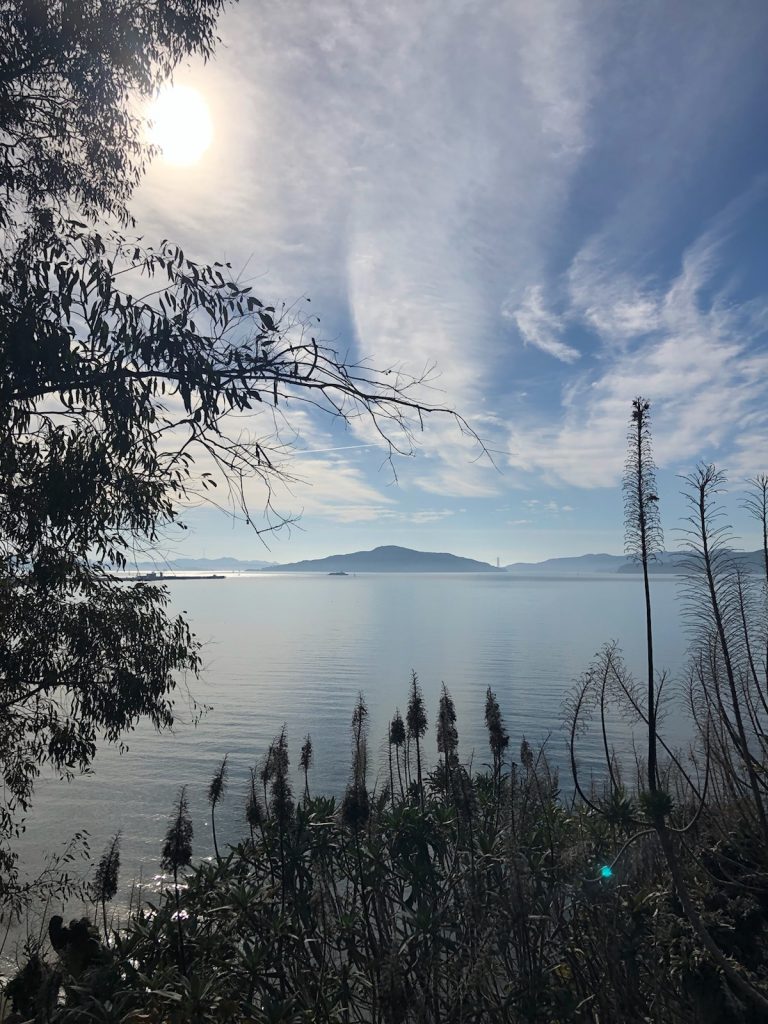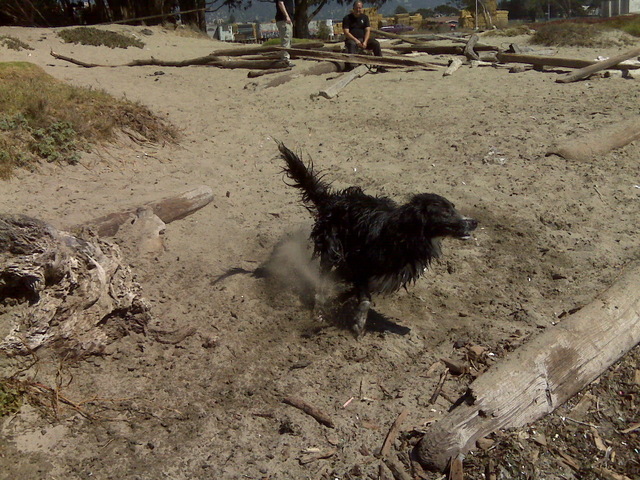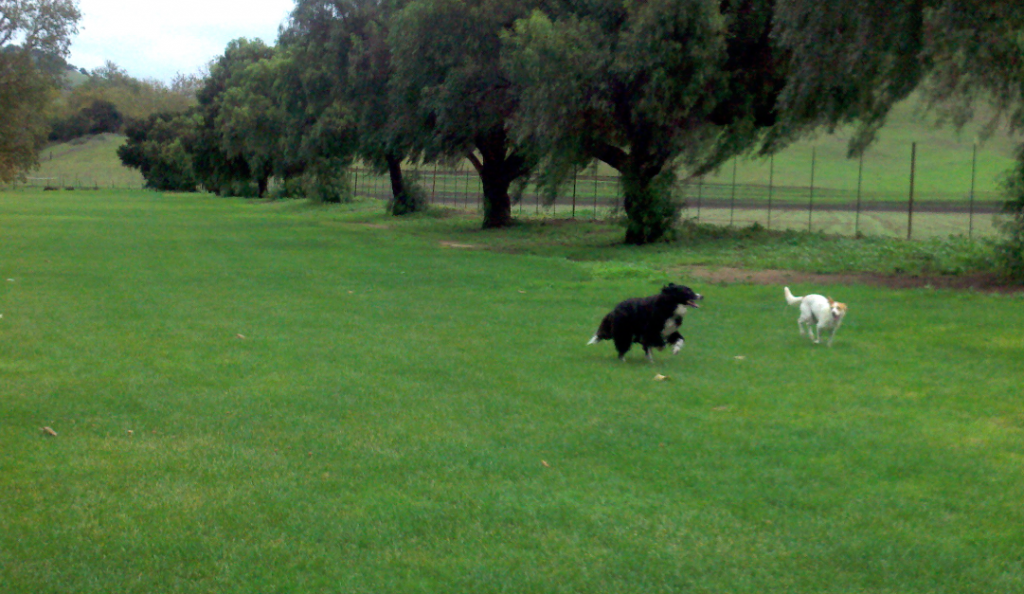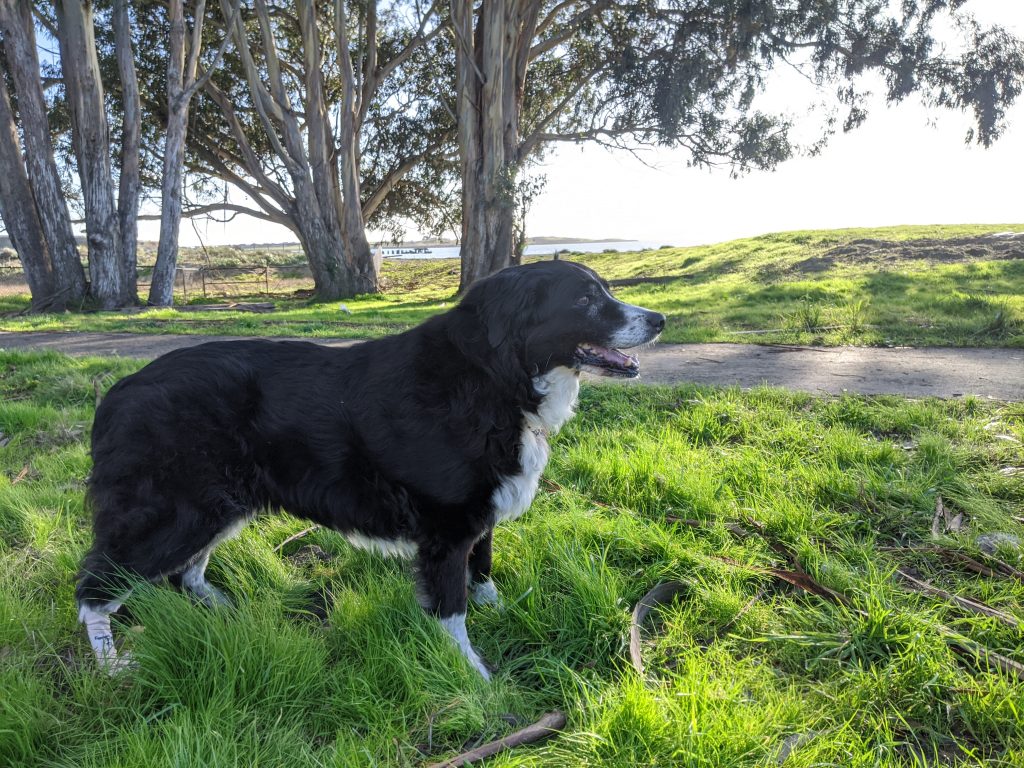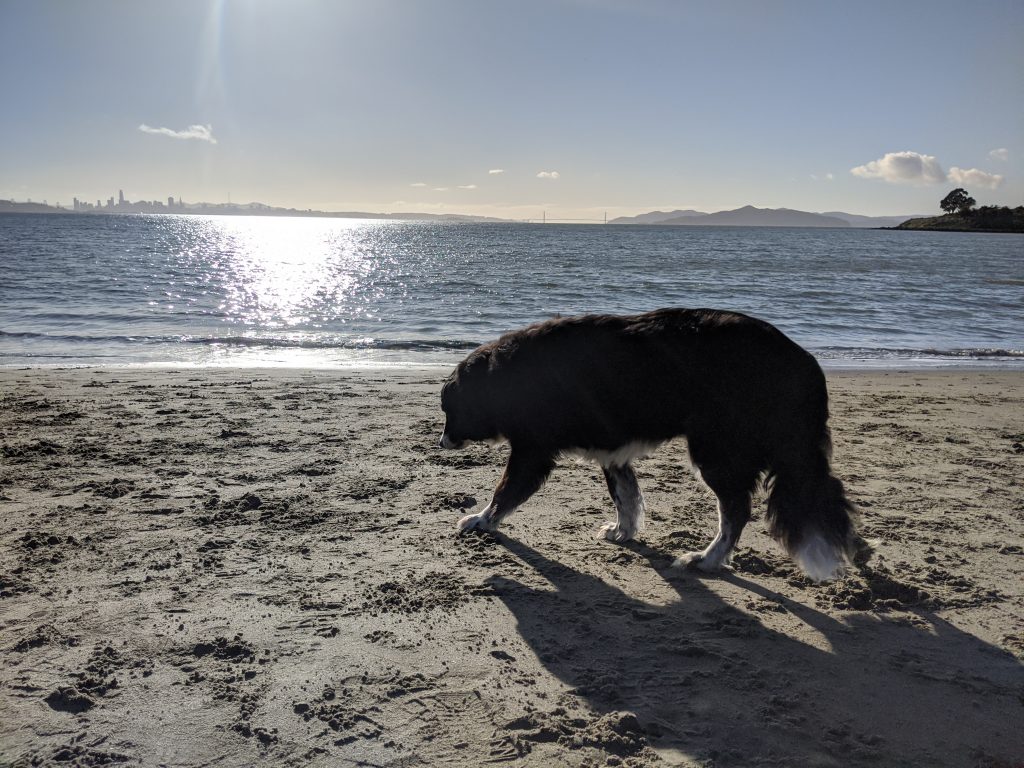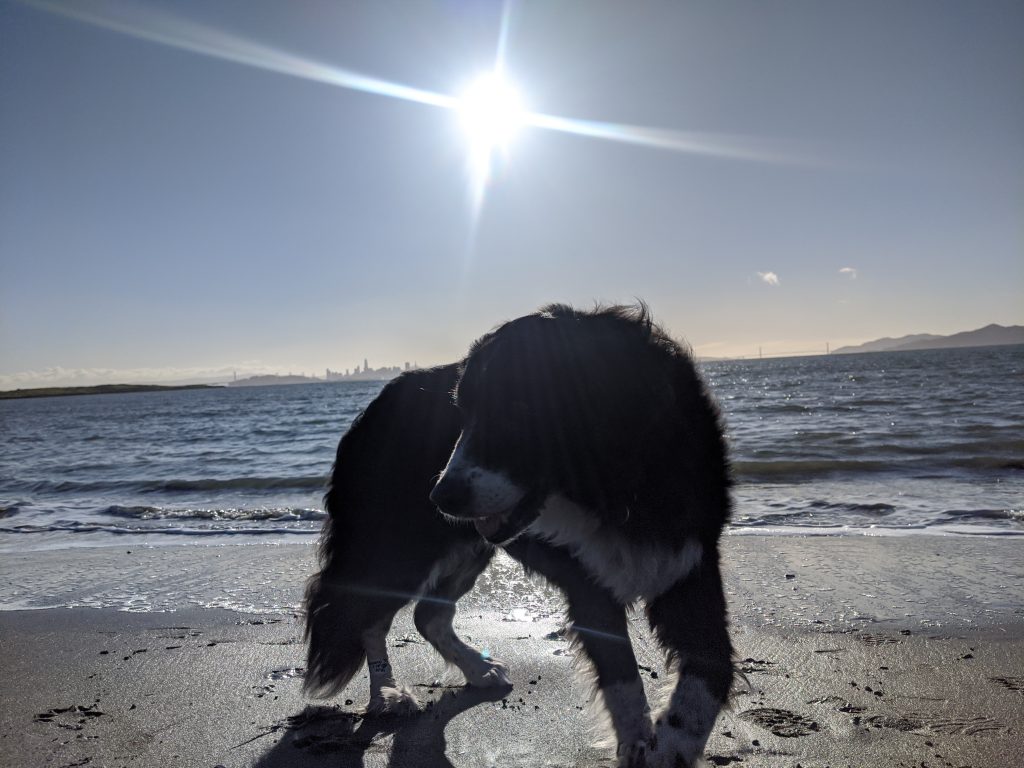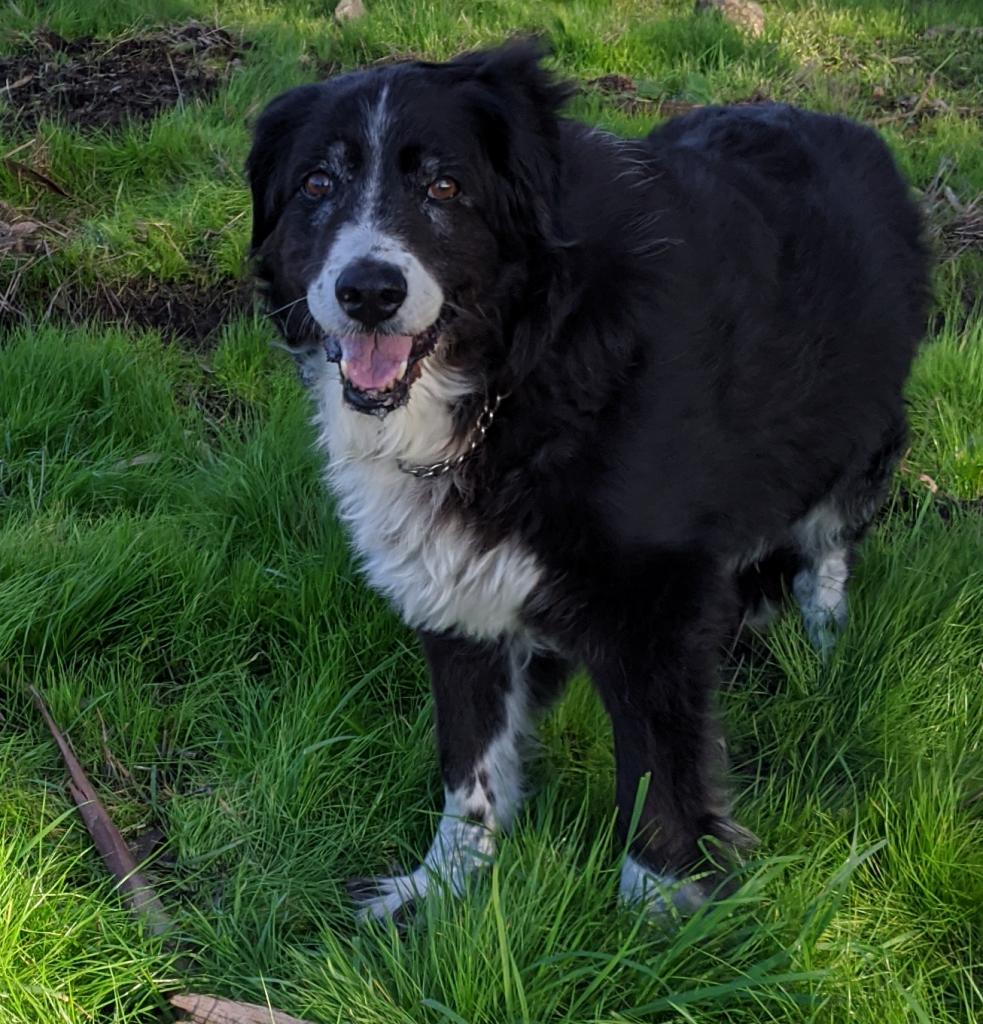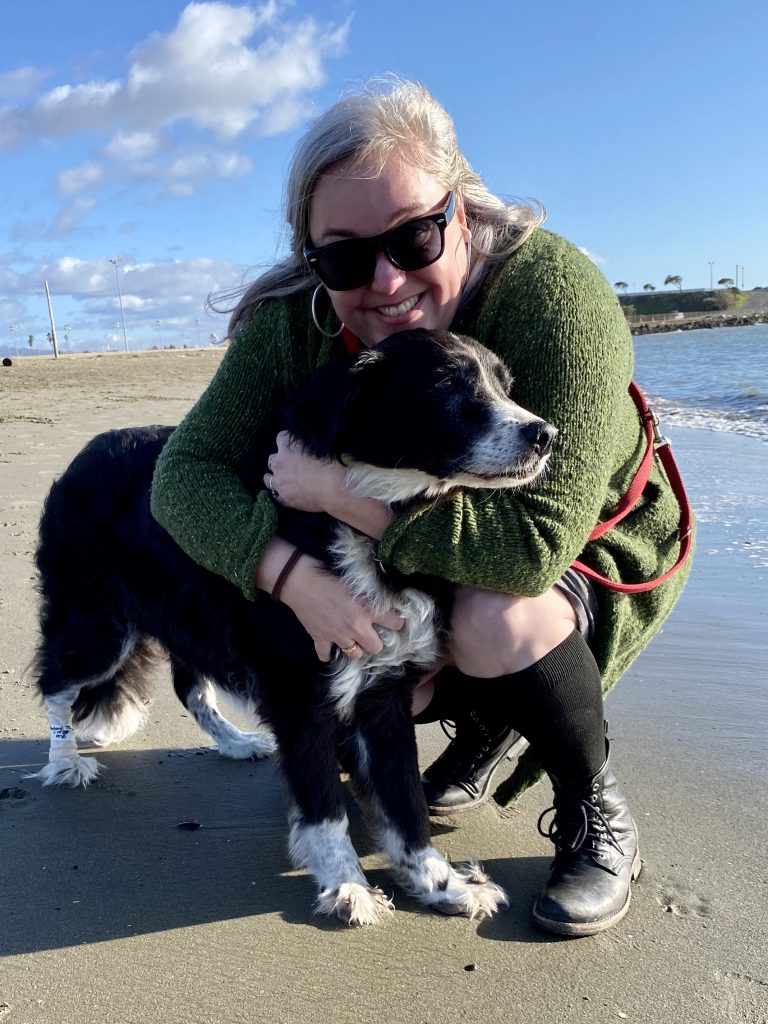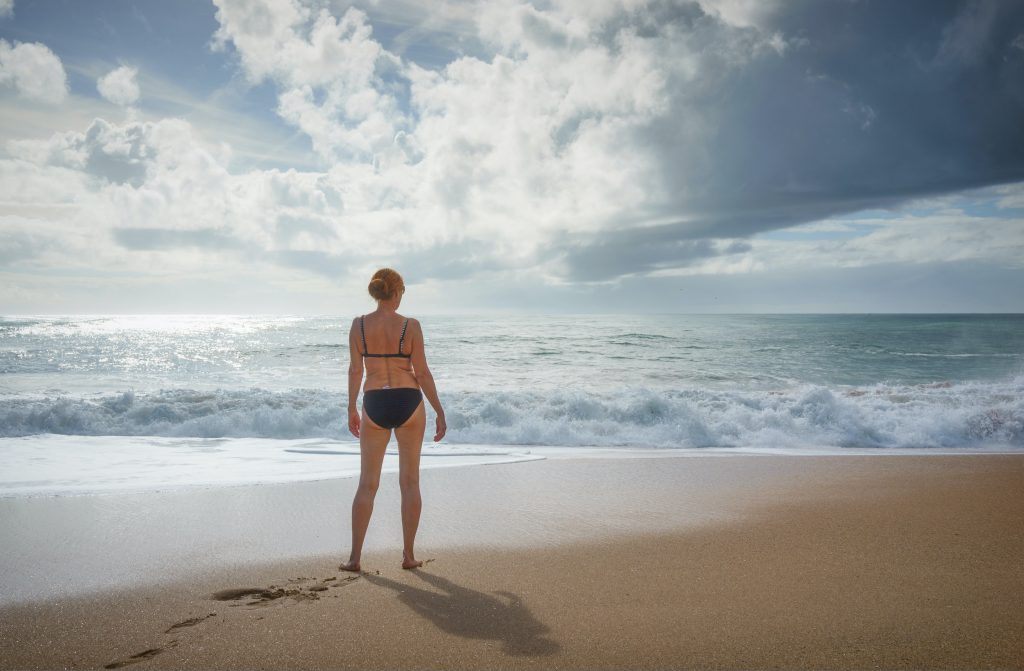
“Swimming is an antidote for the existential anxiety from which I suffer.” – Bonnie Tsui, Why We Swim
I’m lying on my back in a heated pool in the dark. My arms and legs move in a lazy frog-like pattern, just enough to keep moving, not enough to take much energy. I’ve been doing freestyle back and forth, and since I’m still really in the learning phase of swimming, I use this elementary backstroke to recover my breath once I’ve done something wrong and run out of air.
I’ve watched night fall, and the fog above has gone from white to a dark ash. I know that once I pass under the limb of the oak that’s shaped like a ghostly hand, I’m about two feet from the pool’s edge. On the other side, I use my peripheral vision to watch for the second-to-last rail of the fence. Then I give up the backstroke altogether and raise my arms over my head, my fingers waiting to touch the concrete. I remain still, floating, inertia the only thing moving me and that only barely. My lungs lift my ribcage out of the water and then I sink back down as every outbreath makes me less buoyant.
When my fingertips brush the wall of the pool, I lazily fold myself in half as I exhale. My legs and arms go up, my rear goes down, and I’m under the surface, looking at my own body’s reflection against the top of the water. I take a moment to sink (as much as my already-buoyant body will let me), looking through the pool’s wavering lights.
Then I do five or six more freestyle laps. I can’t think much about anything, because I’m too busy thinking about the way my body is moving. Oh, that was a good stroke. Yes, that’s how you lift your chin to get maximum air on the right side breath. Damn it, what happened on the left? Was it the position of my arm? What the hell are my legs doing? Quit kicking so hard. Bend your knees less. Glide.
Every once in a while, I get it exactly right, and I glide while my whole body is relaxed, resting face-down in the top foot or so of water. The very act of holding your breath slows your heart rate, so yes, I’m exercising, but it doesn’t feel like I am. I’m just playing.
This particular form of play is what I’ve missed most during this shelter-in-place. Yes, I swam last weekend in 53-degree water in the Bay, but that felt more like survival. I fell in love with being in a pool in May of last year. I got a good six months of practice before winter set in and I was too much of a baby to continue swimming, something I deeply regret. I would have been in the Mills pool all winter if I’d known by March I wouldn’t have the chance.
But now my swim teacher has rented a residential pool in Alameda, and while her lessons feel prohibitively expensive for a person who’s spending a college education on making her old dog Clementine comfortable in her dotage, I can afford my teacher’s “unassisted” lap swim. I take half the pool while she teaches one person in the other side of the pool.
That means I now, as of last night, get to go through the looking glass once a week. I get to lie under the water and look up.
As a kid, my favorite, most peaceful moments were sitting on the bottom of the pool, the deep thrum of the water in my ears as everything I looked at appeared different and magical, compared to the way things looked on the surface. I can capture a little of that feeling during meditation, when I release a breath and resist the first urge to take another one. If I wait just a beat, the urge to breathe goes away and I can rest on the bottom of my mind. Of course, just a few seconds later, the urge becomes an actual need and I’m happy to take the next breath. I’m not holding my breath. I’m just waiting for the next one to arise.
In Why We Swim, Tsui says, “Push through the looking-glass, and you’ll discover a different way of being. This heightened attentiveness—the ballooning of time, or the speeding-up of it; the perception that time no longer matters, or that it matters less than you might have thought—is the kind of flow I’m after. As human swimmers, we can really be the fish. You and I, we know that. We don’t have to remind ourselves that it’s water around us. But we get glimpses of what it’s like to be the fish. We get flashes of forgetting the water. In the forgetting, we can drift.”
She’s right. Inside that drift is where the flow happens.
I find it at my desk when I forget that I have a body and that the words on the page aren’t real, when I slip into the book I’m writing and inhabit it so fully that I forget everything else.
Of course, this drift—this flow—is only realized after you’ve come to. Like a dream, you wake and you remember again where you are.
Last night, I could have sworn I only swam about twenty minutes before getting tired and leaving, but when I looked at my phone, it had been almost an hour. Normally, I’m preternaturally conscious of time. I wake a minute before my alarm, no matter what time I set it for. If I start a cooking timer, I hear an almost-audible ping in my mind and get up and walk toward the kitchen just before it goes off forty-five minutes later, even though I haven’t been thinking about it at all. My wife thinks it’s a special kind of superpower. Yes, my body and mind understand time, but not when I’m swimming. Not when I’m writing.
And in this forgetting, the flow of drift is what I chase.
